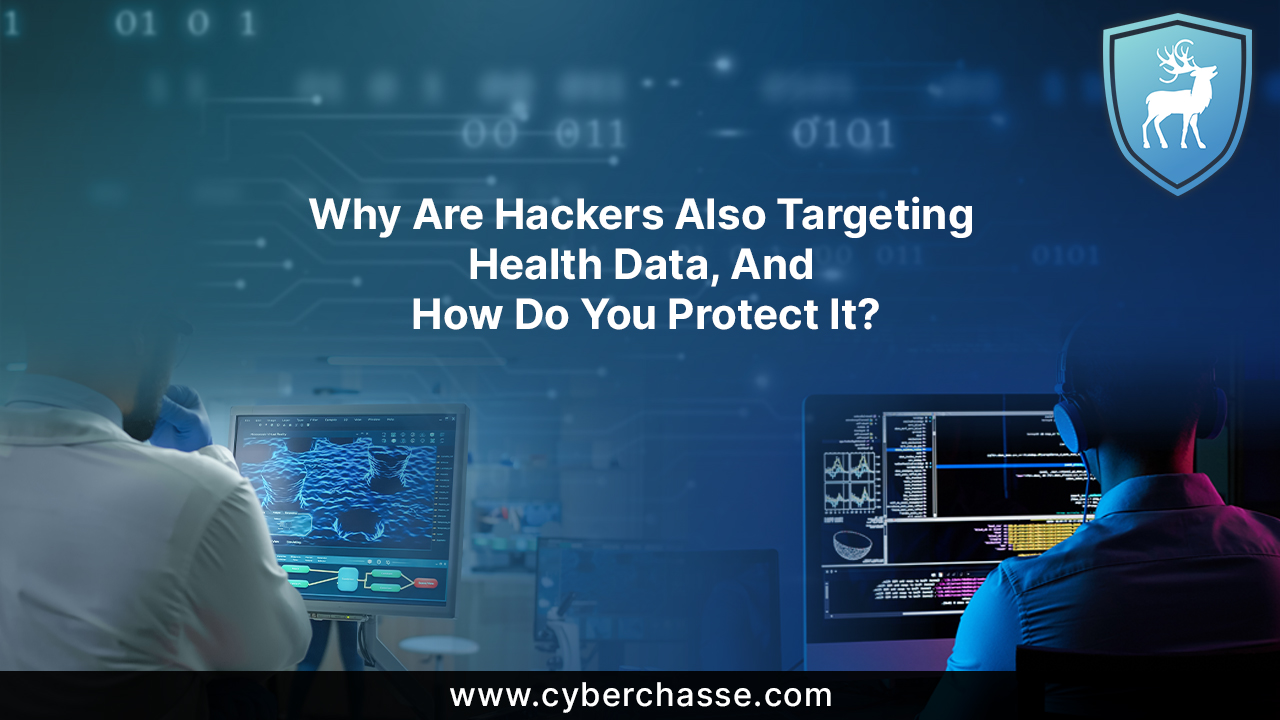22 Sep Why are hackers also targeting health data, and how do you protect it?
In recent years, we’ve seen an uptick in data breaches where hackers have accessed sensitive information like social security numbers and credit card information. But now, it seems that hackers are also targeting health data. Why is this? And how can you protect your health data from being hacked?
The increase in health data breaches
It seems like every day there’s a new headline about a major While most of these breaches involve financial data or customer information, an alarming number are also targeting health data.
There are a few reasons why hackers are increasingly targeting health data. First, it’s valuable. Health data can be used to commit fraud or identity theft. Second, it’s often poorly protected. Many healthcare organizations don’t have the same security measures in place as banks or other businesses that handle sensitive data.
So how can you protect your health data? The first step is to be aware of the risks. Be careful about sharing your health information online or over the phone. If possible, use a secure website or app to access your health records. And make sure you know who has access to your records and how they’re safeguarded.
If you suspect your personal health information has been compromised, contact your healthcare provider immediately. You should also report the incident to the Federal Trade Commission and the Office for Civil Rights.
Why hackers are targeting health data
According to a recent report, the health care industry is now the second most popular target for hackers, behind only the financial sector. This is likely due to the valuable personal information that is contained in health records, such as Social Security numbers, addresses, and birth dates.
There are several ways that hackers can gain access to health data. One common method is called phishing, where hackers send out emails that appear to be from a legitimate organization, but contain links that lead to malicious websites. Once on these websites, victims may be asked to enter their personal information, which can then be used to steal their identity or commit fraud.
Another way that hackers can obtain health data is by breaking into databases that store this information. Once inside, they can either sell the data on the black market or use it to commit medical identity theft. This type of theft can be particularly damaging because it can give the thief access to victims’ insurance benefits and even allow them to receive medical care in their name.
To protect your health data from being hacked, it’s important to be aware of the dangers and take steps to safeguard your information. One way to do this is to only provide your personal information to trusted
How to protect your health data
As we become increasingly reliant on digital devices and online services, our health data is becoming more vulnerable to hacking. While most of us are aware of the risks posed by cybercriminals, we may not be as aware of the dangers posed by hackers.
Health data is a prime target for hackers because it is incredibly valuable. This data can be used to blackmail or extort individuals, or sold on the black market. In some cases, hackers have even accessed medical records to commit identity theft.
Fortunately, there are steps you can take to protect your health data from hackers. Here are some tips:
– Use strong passwords and two-factor authentication whenever possible.
– Keep your software and anti-virus programs up to date.
– Be cautious about clicking on links or opening attachments from unknown sources.
– Avoid using public Wi-Fi networks to access sensitive information.
– Store backups of your health data in a secure location.
The importance of data security
As we’ve seen in recent years, data breaches are becoming more and more common. And while hackers have traditionally targeted financial institutions and retailers, we’re now seeing a rise in attacks on healthcare organizations.
There are a few reasons for this. First, healthcare data is extremely valuable. It can be sold on the black market for a high price, and it can be used to commit identity theft or fraud.
Second, healthcare data is often less secure than other types of data. This is because many healthcare organizations are still using outdated systems and haven’t properly implemented security measures.
So what can you do to protect your health data? Here are a few tips:
– Keep your software up to date. Regular updates will help patch any security vulnerabilities.
– Use strong passwords and two-factor authentication. This will make it harder for hackers to gain access to your accounts.
– Be careful about who you share your data. Make sure you only share it with trusted individuals and organizations.
– encrypt your data . This will make it unreadable if it falls into the wrong hands.
. This will make it unreadable if it falls into the wrong hands.
By following these tips, you can help keep your health data safe from hackers.
Conclusion
In conclusion, health data is a lucrative target for hackers because it can be sold on the black market for a high price. However, there are steps that you can take to protect your health data from being hacked. By encrypting your health data and using strong passwords, you can make it much more difficult for hackers to access your information.
Relish Uninterrupted Data Processing With Our Advanced Healthcare Solutionshttps://cyberchasse.com/solutions/it-healthcare-integration/disaster-recovery/
Looking For A Comprehensive Security Solution? https://cyberchasse.com/solutions/managed-security-services/cyber-security-solutions/




